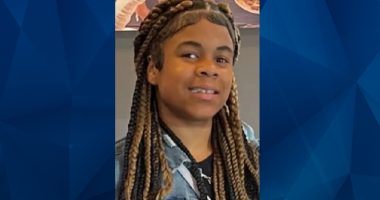
Sophia Johnston and her family, on the left, and in a selfie, on the right. (Daniel Horwitz)
A sheriff’s department and multiple deputies in Tennessee violated a Muslim woman’s religious freedom and civil rights by forcing her to remove her hijab for a booking photo, a federal lawsuit claims.
No man outside Sophia Johnston’s family had seen her hair since she was a child, in line with her devout Muslim faith.
That changed on Aug. 23, when multiple members of the Rutherford County Sheriff’s Office forced her to remove her religious headscarf for “no valid or compelling” criminal justice reason, according to her 14-page lawsuit filed in a Nashville-based U.S. district court.
“Citizens have a right to practice their religion without unreasonable governmental interference, and it is unacceptable that any government entity would contravene those rights, especially given the robust protections that Tennessee, in particular, affords them,” Johnston’s attorney Daniel Horwitz told Law&Crime.
After denying her request for a religious accommodation, Johnston at first refused to remove her hijab, the lawsuit says.
“When Mrs. Johnston refused, [Rutherford County] intake officer [Kaitlynn Laird] informed Mrs. Johnson that she would be incarcerated indefinitely until she complied,” the filing reads. “Because Mrs. Johnston is a mother of eight children and could not afford to be incarcerated indefinitely, she relented under strenuous protest.”
The ensuing removal of her hijab left her “scarred,” says the complaint, which alleges Johnston was mistreated, that her federal and state rights were violated, and the RCSO’s “misbehavior was also illegal.”
The incident unfolded after Johnston was pulled over for a broken tail light in Wilson County. The arresting officer noticed she had an existing Rutherford County warrant out for another minor traffic violation from six years prior – which Johnson says she had no memory of – and she was booked in two different jurisdictions.
In Wilson County, the intake officer photographed Johnston with and without her hijab on. After Johnston explained the religious implications of her headscarf and requesting an accommodation, the Wilson County deputy promised to, and later did, publish only the image of the Muslim woman wearing her hijab, the lawsuit explains.
The deputies weren’t quite as accommodating after Johnston was transferred to Rutherford County, according to the lawsuit.
There, Johnston was forced to remove “her hijab in the presence of approximately five men,” the complaint alleges.
Read Related Also: ‘He will get a new trial’: Alex Murdaugh’s lawyers confident about jury tampering claims at crime convention
“A hijab is a traditional Muslim headscarf that is worn by observant Muslim women in the presence of men who are not family members,” the lawsuit goes on. “Requiring an observant Muslim woman to remove a hijab in the presence of men who are not her family members substantially burdens her religious faith.”
Later, the mug shot of Johnston without her hijab was loaded into an online database, the complaint says, where it is now a “public record that is available to any citizen in Tennessee.”
The upshot of that publication is a continued burden of her free exercise rights, the lawsuit says, which is causing Johnston “immediate and irreparable harm” as well as “severe emotional harm.”
Various schools of Islam have various opinions regarding the necessity of wearing a hijab. In most Muslim-majority countries, wearing a hijab is a recommendation and socially accepted as a woman’s choice. The recommendation by many Islamic scholars to wear the veil is considered akin to the Orthodox Jewish practice of women wearing the tichel or snood and certain iterations of Christianity where similar headscarves are also worn.
“As soon as she takes it, I put my stuff on really, really fast and I just burst out in tears and she’s like, ‘You know, it’d be over soon.’ And I’m just crying and telling her, ‘You know, for y’all it will, but for me, this is going to last a lifetime,’” Johnston told Nashville-based ABC affiliate WKRN. “It was treated as if it didn’t matter.”
The filing is fashioned as a Section 1983 civil rights claim and Religious Land Use and Institutionalized Persons Act (RLUIPA) claim under federal law. The statute generally prohibits the government from burdening an incarcerated individual’s “religious exercise” unless such a burden furthers “a compelling governmental interest.”
Johnston also claims her religious freedom and rights were violated under two separate sections of Volunteer State law.
“People have a right to practice their religion without unreasonable governmental interference, and it is unacceptable that any government entity would contravene those rights, especially given the robust protections that Tennessee, in particular, affords,” Horwitz added in comments to the TV station. “The fact of the matter is you do not need to require a Muslim woman to remove her headscarf in order to take a booking photo, and they required her to do so here under threat of indefinite incarceration.”
In addition to Laird, Johnston is also suing Rutherford County itself, Rutherford County Sheriff Mike Fitzhugh, Rutherford County Sheriff’s Office Deputy Chief of Law Enforcement Britt Reed, and Deputy Chief of Rutherford County Adult Detention Center Kevin Henderson.
The lawsuit seeks at least $200,000 in damages, interest, and attorneys’ fees, as well as a court order compelling the expungement and removal of the booking photo that shows Johnston’s hair.
Law&Crime reached out to the RCSO for comment on this story but no response was immediately forthcoming.
Have a tip we should know? [email protected]








